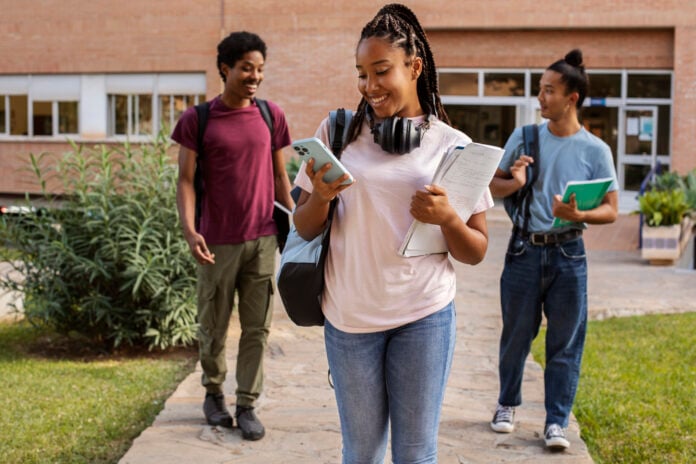Too often, “the important distinction between matters of regular school discipline that should be addressed at the school level and matters of school safety that might warrant law enforcement involvement has been blurred,” according to the complaint. Data shows far more Black students are ticketed than white students, the complaint says, evidence the practice “is not only unjust, it is also discriminatory.”
School ticketing became commonplace in the late 1990s and early 2000s when schools began working more closely with police to handle student misbehavior. Instead of teachers or principals dealing with a student who skipped class or got in a fight, students started getting actual tickets from school resource officers.
While SROs hand out tickets for major offenses, they also ticket students for minor violations, such as talking back to authority figures or being late to class. For some violations, the fines can reach as high as $750.
The 16-year-old accused of damaging the fence appealed the suspension at a hearing, where another student was found responsible for the damage. His mother told ProPublica that police interference in her son’s case was unjustified and that those who paid fines should get a refund.
“I would hope that if they know they were doing it illegally, they would wipe all the tickets out,” she told the news website. “That is what they should do. If anyone had to pay fines, they should be reimbursed.”
In July 2024, the Attorney General’s office concluded that Township High School District 211 in Palatine improperly directed police to fine students for behavior better addressed by school administrators. These fines, critics say, is another educational inequity that funnels Black students into the criminal justice system.
National Overlap Between Schools and Law Enforcement
School-based ticketing is a growing concern nationwide, and its data has consistently shown the alarming impacts of such policies. While it’s unknown exactly how many schools or districts use the practice, it’s a particularly acute problem in Illinois.
According to the Illinois Department of Education, Black students make up just 17% of the state’s public school population but account for 42% of ticketed incidents. In the 2021-22 school year, Illinois’s Black and Hispanic students received about 68% of the tickets issued at school, even though they make up about 33% of district enrollment.
White students made up 42% of district enrollment but only received 24% of tickets.
A 2024 report from McArthur Justice Center found that in Rockford Public Schools, another school district in Illinois, Black students received 54.7% of tickets even though they make up 31% of the student population.
These policies introduce new barriers such as financial hardship and additional legal consequences if families are unable to pay — which deepens existing inequities for Black students who already face systemic barriers to academic success.
The Hidden Costs of Education
The consequences of ticketing go beyond financial hardship. Ticketed students often have problems with absenteeism, as court appearances and fines disrupt their education. Black students, in particular, are drawn into a legal system for infractions that would never be considered serious enough to be heard in juvenile court.
At the same time, research indicates that Black students who miss school due to disciplinary actions are linked to lower standardized test and GPA scores, reduced academic performance, and higher dropout rates for Black students.
A Legal Turning Point Presents Hope for the Future
The Illinois Attorney General’s ruling against District 211 has sparked hope for broader reforms. While the decision applies specifically to this district, advocates believe it sets a precedent for challenging similar policies across the state and the nation.
Illinois state Rep. La Shawn Ford, a Democrat from Chicago who has championed education equity, told ProPublica that he plans to reintroduce a bill in 2025 to prohibit all the state’s schools from involving police in minor disciplinary matters.
“We don’t want police doing schools’ work,” Ford said.


